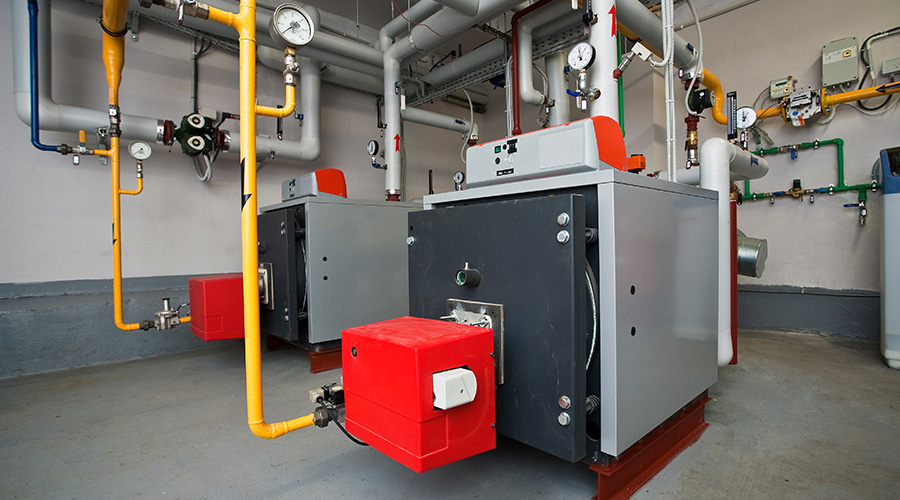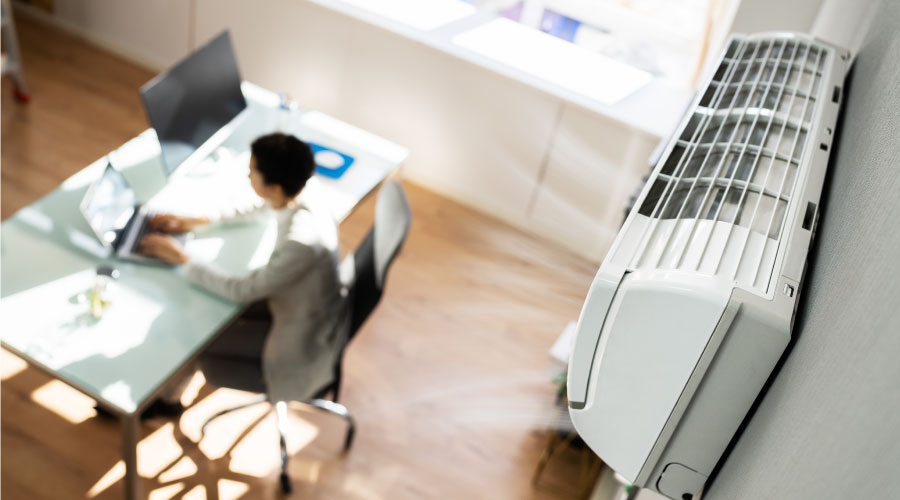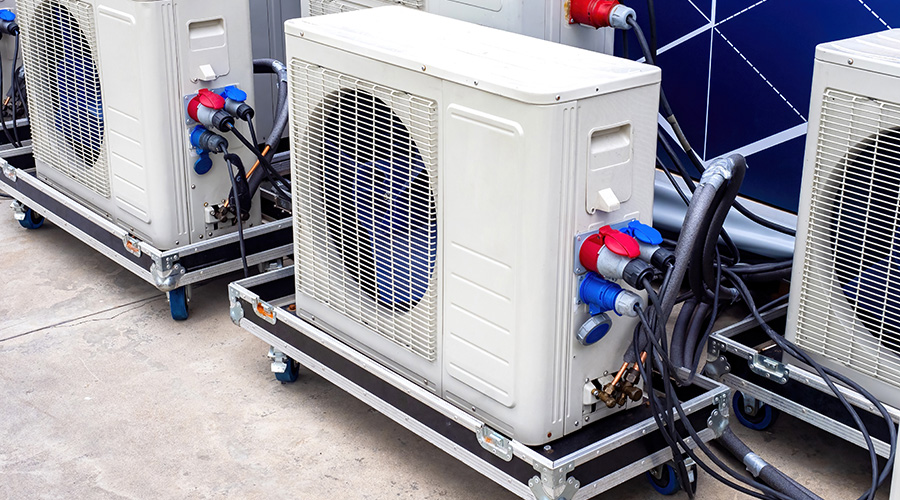HVAC Maintenance Key to Efficient Operations
As with boilers, chillers are only as efficient as their maintenance programs. While many tasks make up a chiller-maintenance program, a select few are most critical to the unit’s efficient operation.
One such task is water treatment. Technicians must treat the water that circulates in chilled-water systems to control the build-up of contaminants. Untreated circulating water will result in scale formation, corrosion, and biological growth, all of which rob the chiller of operating efficiency.
While most chillers are equipped with automatic chemical-treatment systems that keep the contaminant levels within the desired range, technicians must monitor those systems regularly to ensure proper operation.
Technicians also must monitor and test the refrigerant in chiller systems regularly to ensure the system is operating as efficiently as possible. During normal operations, small leaks develop in sealed refrigerant systems, resulting in a slow loss of refrigerant.
The loss might be slow enough to avoid action under environmental regulations, but it still will rob the chiller of operating efficiency. For smaller systems, refrigerant levels might require testing only once a year. For large systems, refrigerant levels might require testing monthly or even weekly.
The periodic testing of the chiller’s oil also is essential in large chiller systems. Contaminants found in the oil provide valuable feedback on the chiller’s overall condition, from the amount of wear the components experience to the integrity of the refrigerant circuit. Checking the oil is one of the best means of early detection of developing problems.
Finally, even with proper water treatment, some contaminants will become deposited on the surface of the chiller tubes. To prevent the resulting decrease in heat transfer from seriously impacting operating efficiency, technicians will need to open the chiller and clean the tubes. They should clean condenser tubes every year and clean evaporator tubes every two-three years.
Managers have many other technology options and maintenance activities at their disposal in the search for efficiency and savings, but those discussed are critical to the efficient operation of boiler and chiller systems and likely to pay the largest dividends. •
James Piper, P.E., is a national consultant based in Bowie, Md., with more than 25 years of experience with facilities maintenance and management issues.
Spotlight: AHRI
The Air-Conditioning, Heating, and Refrigeration Institute (AHRI) is the trade association representing manufacturers of air conditioning, heating and commercial refrigeration equipment. AHRI is an internationally recognized advocate for the industry and develops standards for and certifies the performance of many of these products.
AHRI’s 370 member companies account for more than 90 percent of the residential and commercial air conditioning, space heating, water heating and commercial refrigeration equipment manufactured and sold in North America.
For more information, visit www.ahrinet.org
|
Related Topics:















